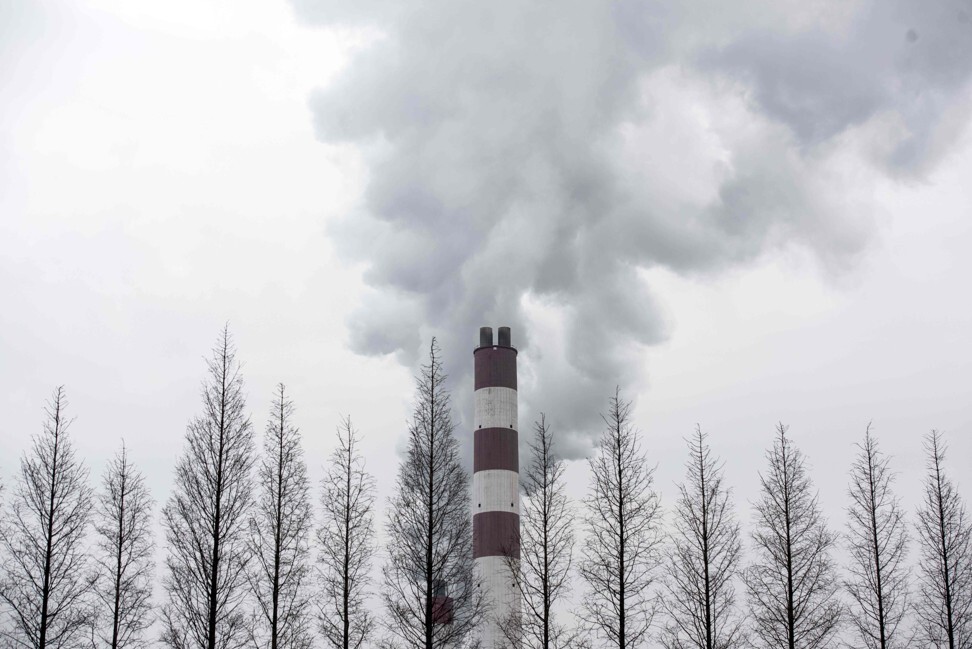
China’s carbon neutral goal: mainland companies seen trailing global peers by 2050, Fidelity survey shows
- Only 54 per cent of mainland firms are seen meeting the carbon neutral target versus 64 per cent average globally, survey shows
- Global telecommunications firms are tipped to achieve the best results relative to the ambitions set in the Paris agreement
Only 54 per cent of mainland firms are seen achieving carbon neutrality by 2050, according to Fidelity International, compared with 75 per cent among European companies, and 65 per cent for peers in Asia excluding China and Japan. The average in North America and globally is seen at about 64 per cent, its survey shows.
Fidelity, with US$542 billion of assets globally, disclosed the findings based on a survey of 144 analysts at the UK fund manager who regularly interact with companies globally.

04:56
Hong Kong could slash carbon emissions 70% with more ambitious goals, says former observatory head
China’s 2060 goal, along with a target for carbon emissions to peak before 2030, is critical to the global climate-change agenda. The Paris Agreement aims to cap global warming at 1.5 degrees Celsius by 2100.
Among global energy firms, only 2 per cent of them comprising mainly oil, gas and coal producers are expected to achieve “net zero” emissions by 2030 before rising to 29 per cent by 2050, the survey by industry breakdown shows.

04:32
Year of the Ox predictions: a fortune teller’s outlook for Hong Kong, China and the US
“This illustrates the structural difficulties in transitioning entire business models given the existing way we produce energy,” Tan said at a webinar on Tuesday. This shows ample opportunities for new technologies and projects to address the challenge, Tan added.
Power utilities are projected to fare better, with 20 per cent potentially reaching carbon neutral in 2030, rising to 69 per cent by 2050.
Telecommunications firms are tipped to achieve the best results relative to the ambitions in the Paris agreement. Some 95 per cent of them are expected to attain net-zero emission by 2050, followed by 73 per cent of both information technology and financial companies.

Fidelity expects to announce its own 2030 targets before the next United Nations Climate Change Conference in November, by aligning the proportion of its assets under management to the goals. The firm is building methodologies to assess carbon reduction performances and risk exposure to climate change of companies it invests in.
“At the current stage it is not very aggressive,” said Flora Wang, a Fidelity director responsible for sustainable investing. “We expect little [profit] impact near term. “Generators with a bigger proportion of their output from renewable energy may actually make money out of it. But we do expect the quotas reduction to accelerate from 2025 onwards.”

